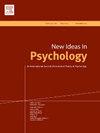如果你不把它问题化,你就不会看到它,也不会理解它
IF 2.9
3区 心理学
Q2 PSYCHOLOGY, EXPERIMENTAL
引用次数: 0
摘要
本文批判性地将问题化重新定义为一种研究方法和一种批判性思维的变革方法,将其定位为一种超越传统研究实践限制的关键操作方式。与传统的专注于发现差距和增量贡献的研究方法不同,本文强调问题化的独特能力,即质疑和破坏支撑现有知识结构的基本假设。通过这样做,它推动研究人员重新想象和扩大学术探究的视野。本文以尼采、福柯、马克思、海德格尔、德勒兹和拉康的思想贡献为基础,解决了关于问题化的论述的理论局限性,这些局限性通常被复杂的哲学术语所掩盖,同时消除了对其性质和应用的误解。除了理论探索之外,本文还介绍了一个整合创新隐喻,话语清晰度和可操作策略的实践框架。这个框架是为博士生和早期职业研究人员量身定制的,为他们提供了认识论和关键问题的分类,以便有效地将研究问题问题化。指导本文的研究问题探讨了如何重新解释和操作问题化,以挑战主流研究范式中的意识形态和权力动态。此外,本文还探讨了多模态方法——结合根茎、系谱、视觉、隐喻和生态思维——如何深化问题化实践。本文章由计算机程序翻译,如有差异,请以英文原文为准。
If you don't problematize it, you won't see it, and you won't understand it
This paper critically redefines problematization as both a research method and a transformative approach to critical thinking, positioning it as a pivotal modus operandi that transcends the limitations of conventional research practices. Diverging from traditional established research methods focused on gap-spotting and incremental contributions, this paper underscores problematization's unique capacity to interrogate and disrupt the foundational assumptions underpinning existing knowledge structures. By doing so, it drives researchers to reimagine and expand the horizons of scholarly inquiry. Grounded in the intellectual contributions of Nietzsche, Foucault, Marx, Heidegger, Deleuze, and Lacan, this paper addresses the theoretical limitations of the discourse about problematization, often clouded by complex philosophical jargon, while dismantling misconceptions about its nature and application. Beyond theoretical exploration, this paper introduces a practical framework that integrates innovative metaphors, discursive clarity, and actionable strategies. This framework is tailored to empower doctoral students and early-career researchers, equipping them with a taxonomy of epistemological and critical questions for effectively problematizing research problems. The research questions guiding this paper investigate how problematization can be reinterpreted and operationalized to challenge the ideological and power dynamics within dominant research paradigms. Furthermore, this paper explores how a multi-modal approach—combining rhizomatic, genealogical, visual, metaphorical, and ecological thinking—can deepen the practice of problematization.
求助全文
通过发布文献求助,成功后即可免费获取论文全文。
去求助
来源期刊

New Ideas in Psychology
Multiple-
CiteScore
4.80
自引率
3.80%
发文量
37
期刊介绍:
New Ideas in Psychology is a journal for theoretical psychology in its broadest sense. We are looking for new and seminal ideas, from within Psychology and from other fields that have something to bring to Psychology. We welcome presentations and criticisms of theory, of background metaphysics, and of fundamental issues of method, both empirical and conceptual. We put special emphasis on the need for informed discussion of psychological theories to be interdisciplinary. Empirical papers are accepted at New Ideas in Psychology, but only as long as they focus on conceptual issues and are theoretically creative. We are also open to comments or debate, interviews, and book reviews.
 求助内容:
求助内容: 应助结果提醒方式:
应助结果提醒方式:


